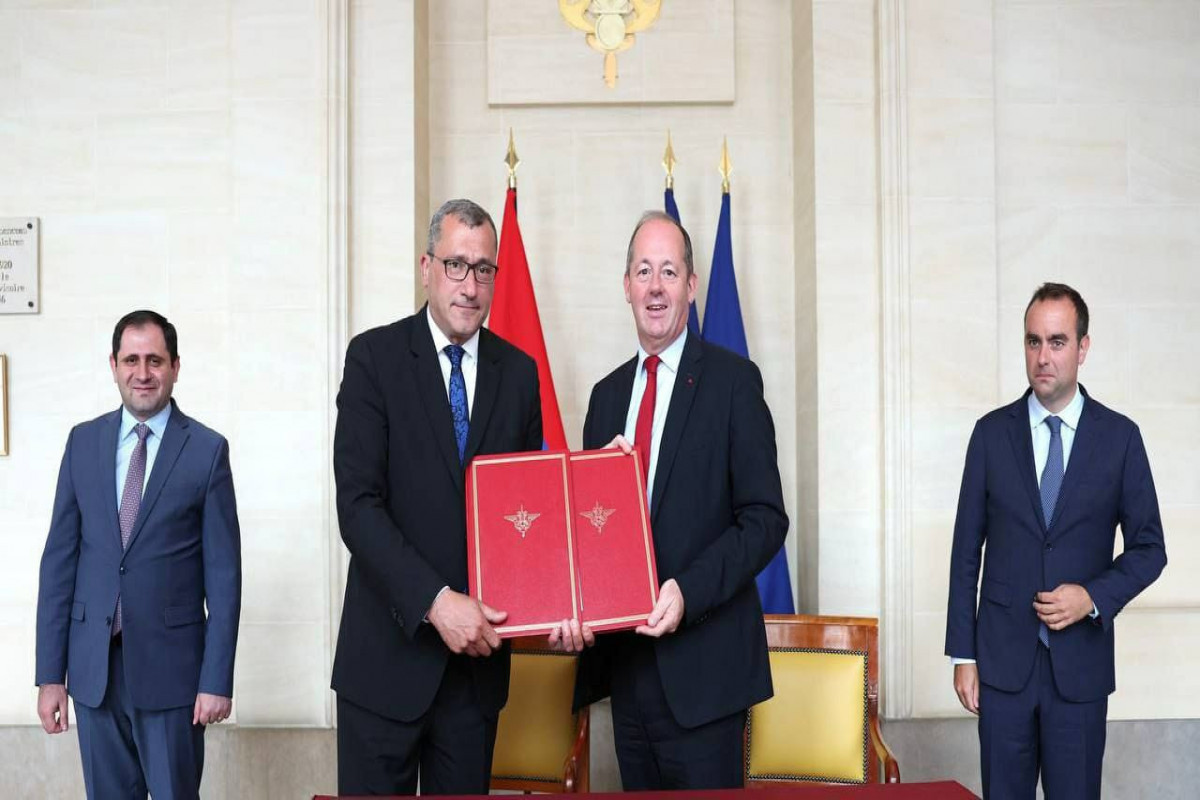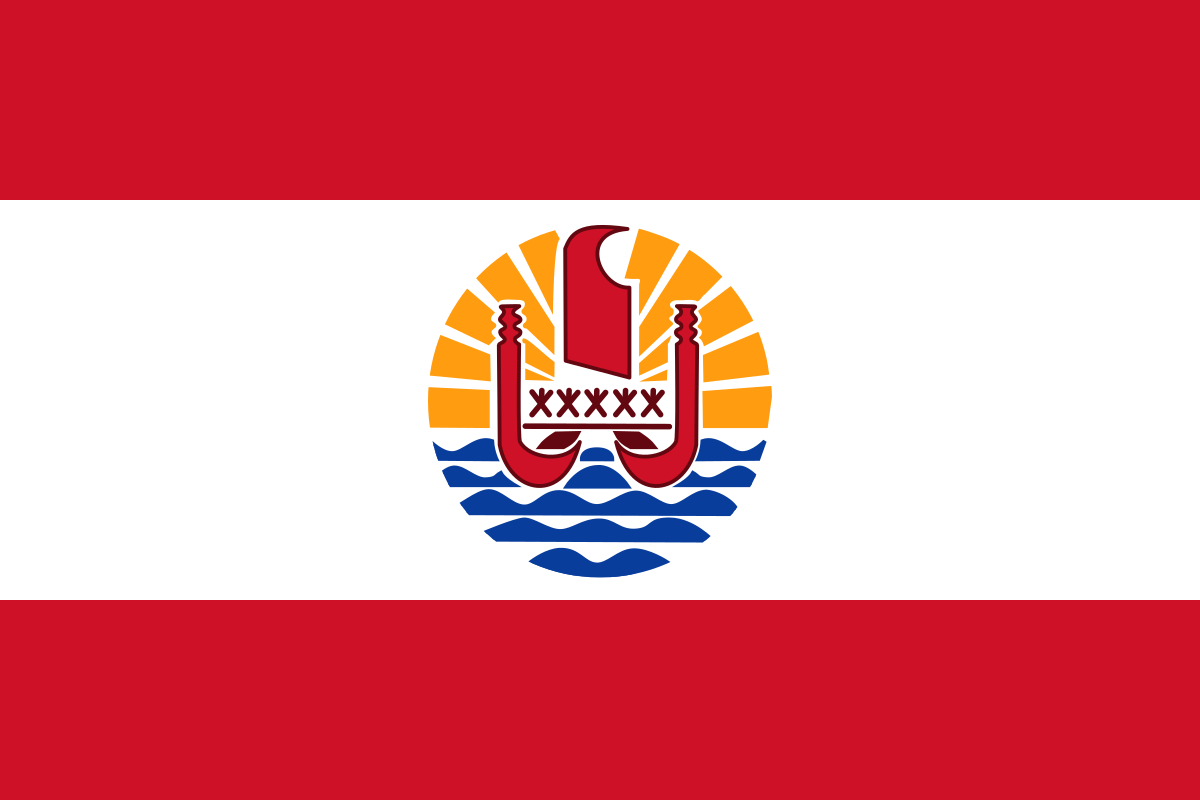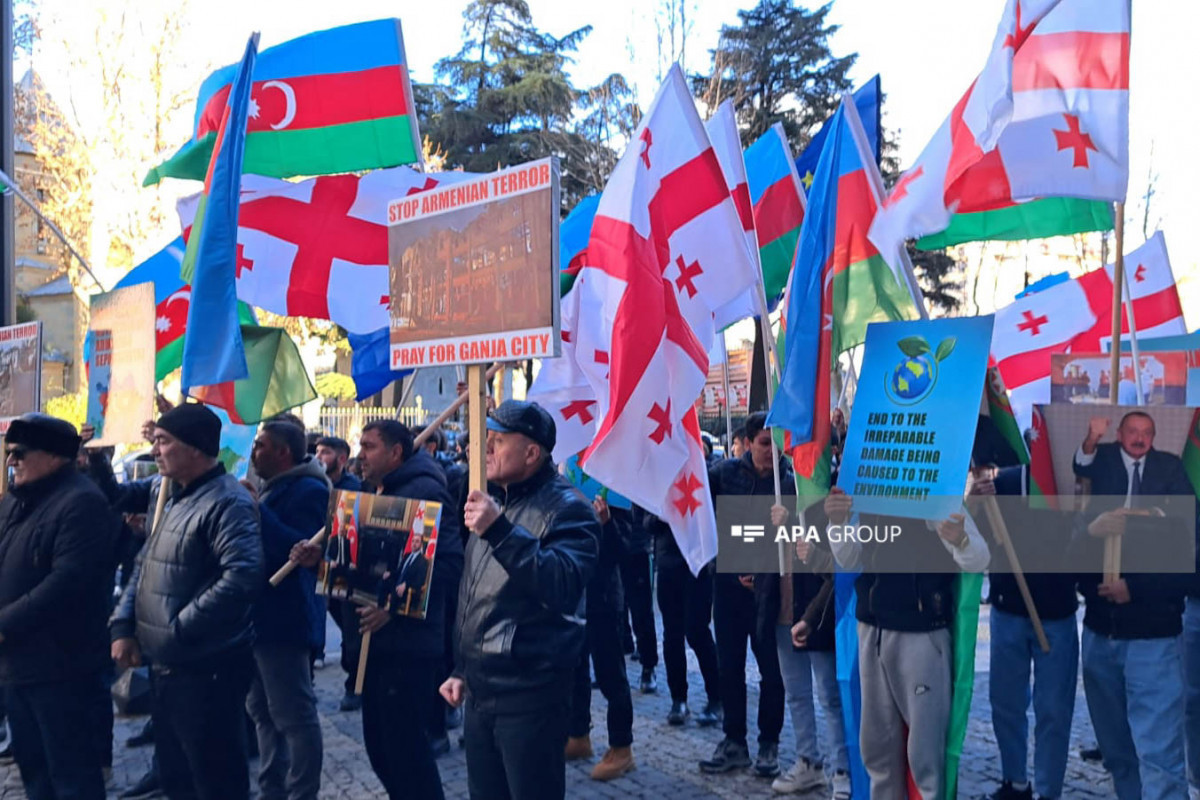On October 6, 2022, a historic statement was adopted on the conclusion of the meeting between President of Azerbaijan Ilham Aliyev, Prime Minister of Armenia Nikol Pashinyan, President of France Emmanuel Macron and President of the Council of the European Union Charles Michel in Prague, the capital of the Czech Republic. According to the statement, Armenia and Azerbaijan reaffirmed their commitments to the UN Charter and the Alma-Ata Declaration of 1991, in which both sides recognized each other's territorial integrity and sovereignty. Thus, Armenia ended its territorial claims against Azerbaijan which lasted for more than 30 years and accepted that Garabagh is an integral part of Azerbaijan. The statement, approved by signatures of the parties, gave a "green light" to start delimitation and demarcation between the two countries.
At first glance, it gave the impression that the Prague statement resolved the fundamental problem in Azerbaijan-Armenia relations - the Garabagh issue, thus there was no obstacle for the parties to sign the peace agreement.
However, Armenia's previous behaviors, cases of violations of reached agreements and the norms of international law, revanchism tendencies that have been revealed from time to time, and most importantly, the inclusion of territorial claims against Azerbaijan in the country's Constitution remain a serious obstacle to signing a peace treaty even today.
Thus, the Constitution of Armenia which was adopted in 1996 refers to the Act of Independence of the country. The essence of that document adopted by the Supreme Soviet of Armenia on August 23, 1990 is guided by the joint decision of the Supreme Soviet of Armenia and the "National Council of Nagorno-Karabakh" dated December 1, 1989 "On the unification of the Armenian SSR and Nagorno-Karabakh". Thus, the decision of the Supreme Soviet of Armenia has legitimized the territorial claims against Azerbaijan in the Armenian Constitution through a chain of references which is whether illegal or violates both the USSR documents and international legal norms.
This is the most important point that prevents peace - the Constitution of Armenia.
If the military-political leadership of Armenia is sincere in signing the peace treaty with Azerbaijan, it should remove the reference to the Independence Act from the country's Constitution, which will create a foundation for new problems in the future.
The issue does not end there. Even after the 44-day war, Armenia did not shy away from steps that would hinder peace. The action plan for 2021-2026, which was adopted in 2021, includes the terms like "status of Nagorno-Karabakh", resolving the issue in the Minsk Group, resolving the issue with the principle of "remedial secession" and other statements that do not meet the peace agenda.
In such a case, how sincere is Yerevan's intention for peace? What does it mean that Pashinyan's government, which has declared that it accepts Nagorno-Garabagh as Azerbaijan's territory, does not reflect this in legal documents?
The President of Azerbaijan Ilham Aliyev, who received the delegation of TURKPA previous day, also drew attention to those legal-normative documents that will create an obstacle to the peace agreement, territorial claims against Azerbaijan and Türkiye.
“We have never had any territorial claims against any country, including Armenia. They had territorial claims against us. It is the declaration of independence, which was subsequently included in their constitution, that contains territorial claims against Azerbaijan. It is in their ideology, politics and public discourse that territorial claims against Türkiye are incessantly made. Of course, it is simply impossible to conclude a peace agreement between Armenia and Azerbaijan while the current constitution of Armenia remains unchanged. When we raised this question, I said this and I want to say it again – not because we are interfering in their internal affairs, not at all, but it is about us. At a time when they have territorial claims against us, we cannot conclude a peace agreement with Armenia,” Azerbaijani President said.
As you can see, the demands of official Baku are based on international law, and it is concrete and fair. Armenia should put its legal and normative acts and legislation in order, make amendments the Independence Act or the Constitution, and give up its territorial claims against Azerbaijan as well as Türkiye. In particular, it is necessary for Armenia to change its national emblem to state attributes, for example, its state coat of arms depicting Mount Ağrı, which is located on the territory of Türkiye.
Official Yerevan should not forget that there are no territorial claims to Armenia in the legislation of either Azerbaijan or Türkiye. The Pashinyan government should not take path of sabotage with amendment to the Constitution under the guise of interfering in its internal affairs and should understand and accept the right position of Azerbaijan and Türkiye in this matter.
Another important factor for the signing of the peace treaty is related to Armenia's acceptance of responsibility for the war crimes it committed against Azerbaijan in the Garabagh war and in the following periods, and passing through spiritual catharsis.
In order to achieve true peace, the Armenian society, dominated by Turkophobia and Azeribaijanphobia, where brains are poisoned by national hatred, must undergo a certain nationwide rehabilitation. President of Azerbaijan Ilham Aliyev also noted that the Armenian society is poisoned by ideological hatred and propaganda methods.
“From young age, Azerbaijanis and Turks have been portrayed as enemies in their society. It is their society that has been poisoned by nationalists and war criminals. Therefore, they should deal with these issues,” President noted.
That is, in order for there to be peace between the states, the societies of the two countries must be reconciled and should be healthy. For this, Armenia as a state should change its state ideology that is based on Turkish enmity, eliminate school textbooks, media programs and political speeches that instill hatred towards Turks and Azerbaijanis in order to achieve regional peace and friendly neighborhood.
There are deep roots of phobia of Turks, phobia of Azerbaijan in Armenia, it is not being fought at the state level, therefore, additional dangers can arise in the condition of complete opening of trade communications. Peace and openness must be felt at the change of real policy. It is not possible to make sustainable peace real just by issuing statements in connection with peace.
For real, the promotion of an international-scale terrorist like Monte Melkonyan, who has killed hundreds of innocent Azerbaijanis in Garabagh, was destroyed in battles, and is considered a symbol of hatred for Azerbaijanis and Turks, is being promoted in Armenia, giving his name to a military school, streets and avenues, or the criminal Manvel Yegiazaryan, who is being cruelest person against civilians in Garabagh, is living unhindered in Yerevan indicate that it is proof of lack of will and hypocrisy of the Armenian Prime Minister Nikol Pashinyan’s government on this sensitive issue for Azerbaijan.
If Yerevan really wants peace, it should bring to justice the war criminals who, along with the ASALA terrorists who took refuge in Armenia after being freed from prison, killed Turkish diplomats, and killed civilians in Garabagh just because they were Azerbaijanis. By taking this step, official Yerevan can demonstrate its loyalty to the democratic principles, the law enforcement system stays away from discriminatory and nationalistic approaches in its activities, and its interest in the restoring justice.
But it seems that during the 6 years since Nikol Pashinyan came to power, his government has continued the policy of its predecessors in this regard, not only taking legal steps against the criminals who spilled the blood of Azerbaijanis in Garabagh, but also not wanting to apologize on behalf of the Armenian government for the tragedy of Khojaly. However, Pashinyan's government could find the courage and responsibility to apologize for the past tragedies, even if reconciliation and sustainable peace did not happen during his reign. If Armenia was sincere in its intention for peace, it would have apologized for the atrocities committed against Azerbaijan and innocent Azerbaijanis during the 30-year occupation, it would have stopped the false and slanderous rhetoric against Azerbaijan on international platforms about the alleged ethnic cleansing in Garabagh and the forced transfer of nearly 100,000 Armenians to Armenia.
However, Azerbaijan's offer of integration to Garabagh Armenians was completely transparent, and all the events in the region were recorded in detail by the world and local media.
The President of Azerbaijan, Ilham Aliyev, emphasized yesterday another opportunity for Armenia to demonstrate sincerity in achieving peace, it needs to show it through actions rather than just statements.
"Of course, we have already proposed this to the Armenian side, that Azerbaijan and Armenia should jointly apply to the OSCE and abolish the Minsk Group. There is no need for the Minsk Group and it is not functioning now. We will not allow it to operate de facto. It remains for it to be canceled de-jure, legally, and this will show how sincere Armenia is. If Armenia prefers to maintain the Minsk Group, then their territorial claims against us will be continued|, President stressed.
The Azerbaijani leader provides very clear and open messages, articulates the formula for a peace agreement, and offers precise guidance to Armenia.
It is clear from the President's speech that official Baku wants Armenia to show will not to return to revanchism and to be loyal to the peace agreement. This is because for the peace treaty to be signed and for Armenia not to harbor territorial claims against Azerbaijan in the future, Baku needs more effective assurances than the current statements from Armenia's government. The key element that will provide these assurances is a joint appeal regarding the dissolution of the Minsk Group, amendments to the Armenian Constitution, and the approval of the text of the peace treaty.
If official Yerevan wants to maintain the positive momentum brought about by the negotiation process by returning the 4 villages of Gazakh it had occupied to Azerbaijan, it should take these steps. By doing so, Armenia would remove the last major obstacle to the long-awaited signing of the peace treaty.


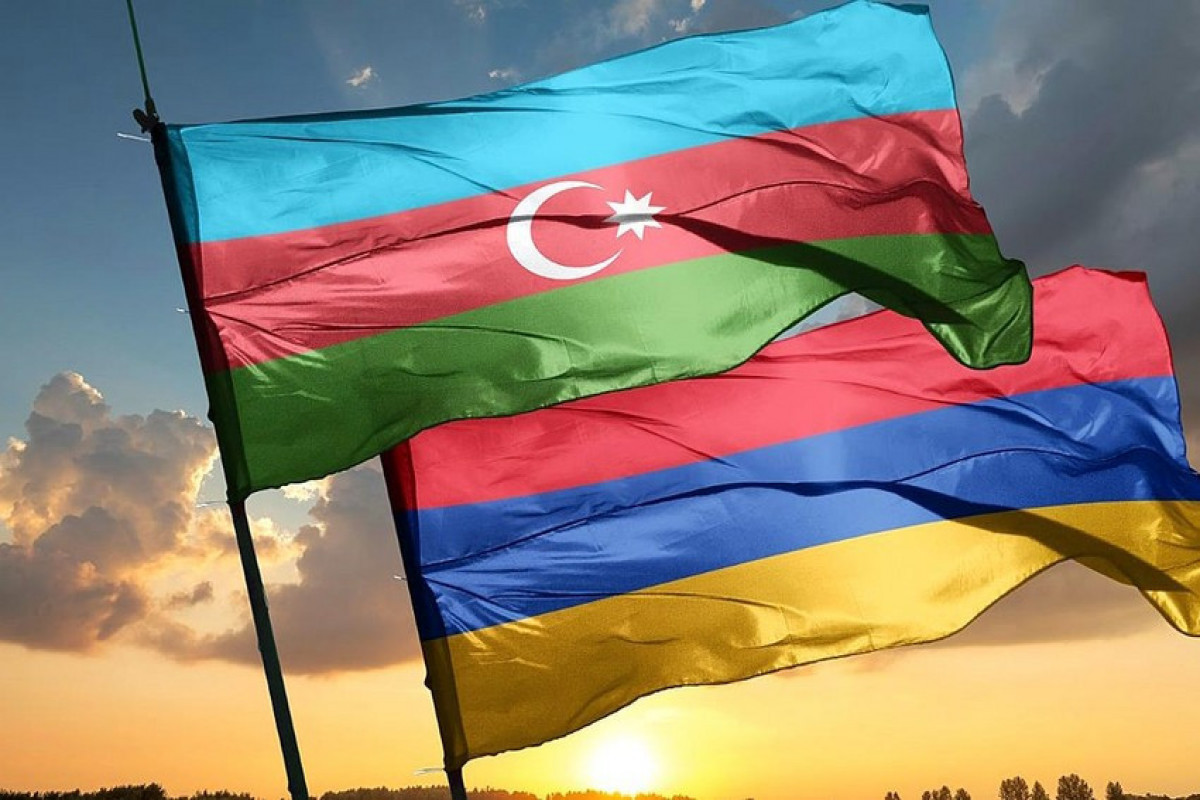
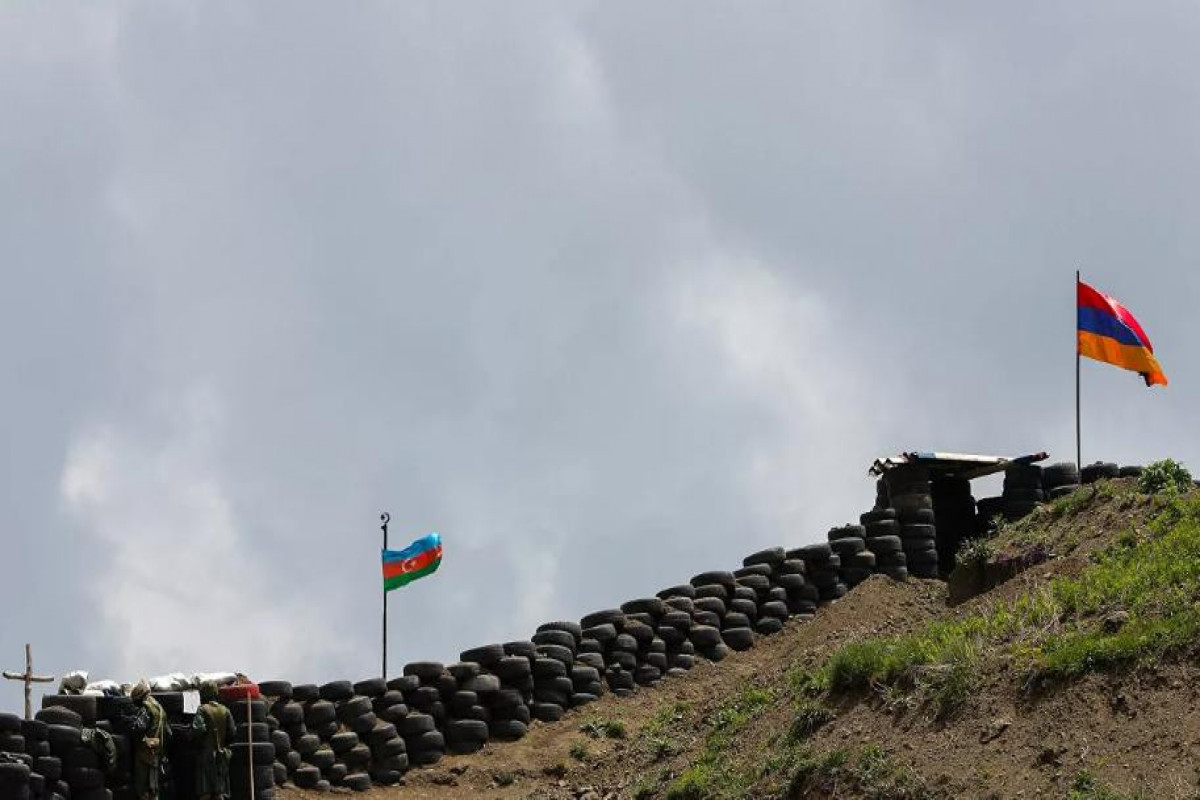 ANALYTICS'>
ANALYTICS'>
